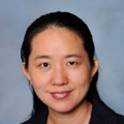This study examines the design and evaluation strategies for a year-long teacher learning and development experience, including their effectiveness, efficiency and recommendations for strategic redesign. Design characteristics include programmatic features and outcomes: cognitive, affective and motivational processes; interpersonal and social development; and performance activities. Program participants were secondary math and science teachers, partnered with engineering faculty mentors, in a research university-based education and support program. Data from multiple sources demonstrated strengths and weaknesses in design of the program's learning environment, including: face-to-face and via digital tools; on-site and distance community interactions; and strategic evaluation tools and systems. Implications are considered for the strategic design and evaluation of similar grant-funded research experiences intended to support teacher learning, development and transfer.
Available at: http://works.bepress.com/chen_ling/16/
